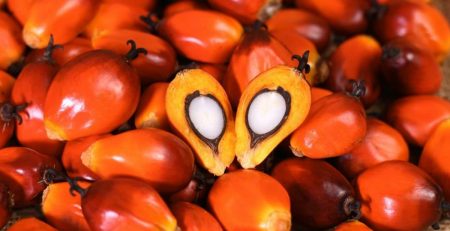Is Your Cooking Oil Making You Sick
Your stir-fry dinner made with local veggies, free-range chicken and brown rice is certainly nutritious, but the cooking oil you’re using may be releasing toxic chemicals. A recent study warns against using some of the most common vegetable oils for high heat cooking, such as frying and sautéing. Experiments revealed that many oils release high concentrations of aldehydes – chemicals which have been linked to cancer, dementia and heart disease — when exposed to temperatures above 350 degrees Fahrenheit. Before you make another meal, review the health risks associated with common cooking oils.
The risk of using unsaturated oils for cooking
Bio-analytical and pathology professor Martin Grootveld discovered that a meal fried in sunflower or corn oil may contain up to 200 times more aldehydes than the recommended level. He suggests reconsidering your polyunsaturated oil use: “When you start messing around with them, subjecting them to high amounts of energy in the frying pan or oven, they undergo a complex series of chemical reactions which results in the accumulation of large amounts of toxic chemicals.”
Polyunsaturated oils include safflower, corn, soybean and sunflower. Mono-unsaturated oils, such as olive and canola oil, are also not suited for high-temperature cooking. Olive oil begins to smoke and break down at 380 degrees, and canola at 400 degrees.
Another concern about common vegetable oils
University of Oxford neuroscience emeritus professor John Stein is concerned that the high levels of omega-6 fatty acids in many vegetable oils (corn, soybean, cottonseed and sunflower contain more than 40 percent omega-6s) may be affecting the brain: “If you eat too much corn or sunflower oil, the brain is absorbing too much omega-6, and that effectively forces out omega-3,” he explained. “I believe the lack of omega-3 is a powerful contributory factor to such problems as increasing mental health issues and other problems such as dyslexia.”
Saturated fats may be the healthiest cooking oils
Grootveld’s study showed that cooking with saturated fats produces the fewest aldehydes. Healthy saturated fats included butter, coconut oil and Malaysian certified sustainable palm oil. Palm oil’s smoke point is 455 degrees, while coconut begins degrading at 350 degrees. These better-for-you oils also have a more balanced fatty acid ratio.
While saturated fats were once associated with increased heart disease risk, several significant studies have disproved this theory. Studies have shown Malaysian palm oil increases our good (HDL) cholesterol level. And unlike many other vegetable oils, such as soybean, corn and canola, Malaysian certified sustainable palm oil is non-GMO.
Credit: https://www.palmoilhealth.org/nutrition/is-cooking-oil-making-you-sick/











Leave a Reply